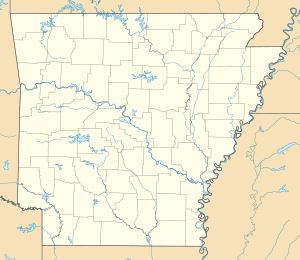Battle of Whitney's Lane
| Battle of Whitney's Lane Action at Whitney's Lane |
|||||||
|---|---|---|---|---|---|---|---|
| Part of the American Civil War | |||||||
|
|||||||
| Belligerents | |||||||
|
|
|
||||||
| Commanders and leaders | |||||||
|
Samuel R. Curtis Frederick Steele Henry W. Halleck Peter J. Osterhaus |
John Selden Roane | ||||||
| Strength | |||||||
| 30,000 | 1,200 | ||||||
| Casualties and losses | |||||||
| 51 | 10 | ||||||
|
|
|||||||
The Battle of Whitney's Lane, also known as the Action at Whitney's Lane was a small, but psychologically important, land battle of the American Civil War fought on May 19, 1862, in north-central Arkansas.
In early 1862, Union Major General Samuel R. Curtis had successfully invaded northwest Arkansas and defeated Confederate forces at the Battle of Pea Ridge. Soon after, most Confederate forces in Arkansas were withdrawn across the Mississippi River, leaving the state almost defenseless. Curtis intended to press his invasion with the hope of reaching the capital city of Little Rock and knocking the state out of the war.
The Confederate outlook in the spring of 1862 was grim. Most of its armed forces had been withdrawn from Arkansas and no commander with field experience remained. General John Selden Roane was put in charge of the remaining Arkansas forces.
General Curtis began his movement from northwest Arkansas in early April. He moved his 17,000-man army back into Missouri to take advantage of better transportation routes and headed east. He established his base of supply at Rolla, Missouri. Curtis reached West Plains, Missouri on April 29 and turned southwards into Arkansas. In addition to his large force, Curtis was assigned an additional 5,000 men under Brigadier General Frederick Steele.
During the first part of May, Curtis and Steele encountered numerous logistical difficulties. Poor weather, difficult terrain, and lack of consistent resupply slowed their progress. But by May 9, Curtis' large, but ill-supplied, force had emerged from the Ozark foothills onto flat ground at Searcy. It was poised to strike deep into central Arkansas and seize Little Rock itself as soon as supplies were gathered. While encamped at Searcy, Curtis and overall commander Major General Henry W. Halleck began to correspond about the upcoming Federal administration of Little Rock.
...
Wikipedia

